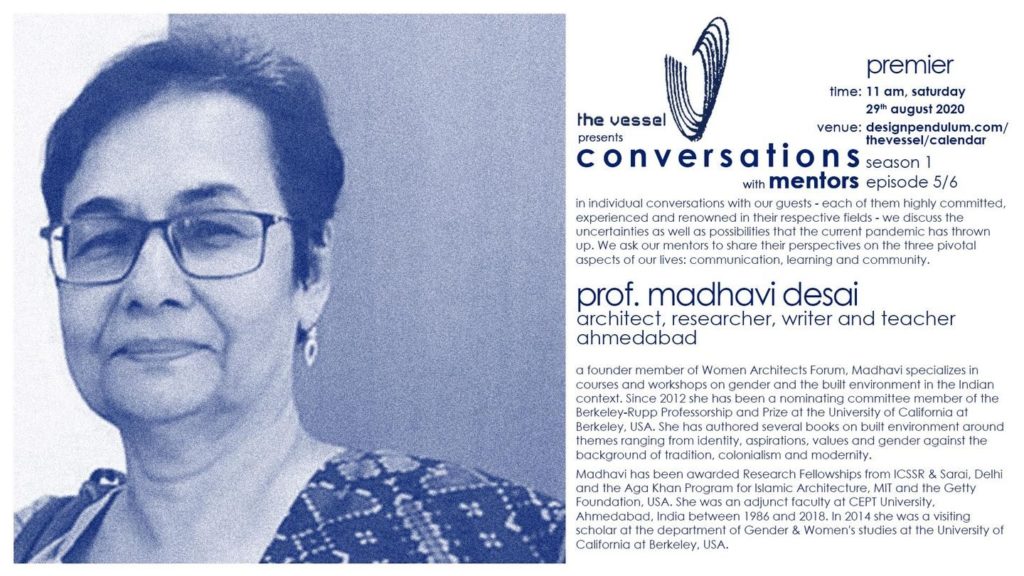Madhavi Desai
conversations with mentors

episode 5 of 6
In individual conversations with our guests – each of them highly committed, experienced and renowned in their respective fields – we discuss the uncertainties as well as possibilities that the current pandemic has thrown up. We ask our mentors to share their perspectives on the three pivotal aspects of our lives: communication, learning and community.
Madhavi Desai is an architect, researcher, writer and a teacher. She was an adjunct faculty at CEPT University, Ahmedabad, India (1986-2018). She has had Research Fellowships from ICSSR, Delhi, the Aga Khan Program for Islamic Architecture, MIT, USA, Sarai, Delhi and the Getty Foundation, USA. She is a founder member of Women Architects Forum.
She specializes in teaching courses and workshops on gender and the built environment in the Indian context. She is a member of the nominating committee of the Berkeley-Rupp Professorship and Prize at the University of California at Berkeley, USA since 2012. She was also a visiting scholar in the department of gender and women’s studies at the University of California at Berkeley, USA in 2014.
She is the co-author of Architecture and Independence: The Search for Identity, India 1880 to 1980, Oxford University Press(1997), Architectural Heritage of Gujarat: Interpretation, Appreciation, Values,Gujarat Government (2012) and The Bungalow in Twentieth Century India: The Cultural Expression of Changing Ways of Life and Aspirations in the Domestic Architecture of Colonial and Post-colonial Society, Ashgate (2012). She the editor of Gender and the Built Environment in India, Zubaan(2007) and the author of Traditional Architecture: House Form of the Islamic Community of the Bohras in Gujarat, Council of Architecture (2007). Her recent bookisWomen Architects and Modernism in India: Narratives and Contemporary Practices, Routledge (2017). She is at present working on an edited book tentatively titled, Gender and the Indian City: Re-visioning Design and Planning to be published by South Asia Press. She has been invited to give lectures at several institutions in India, USA and Europe.

 malkum
malkum